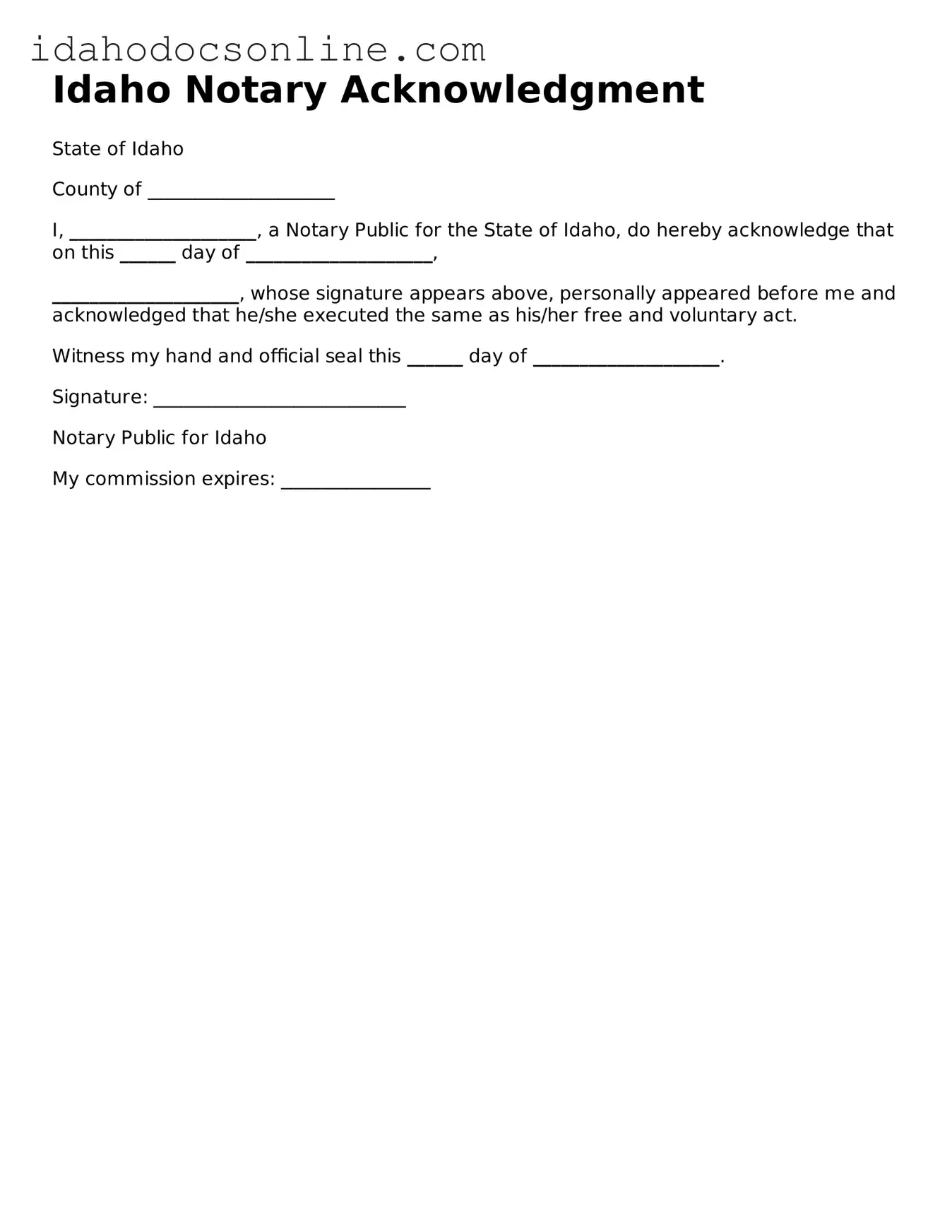Free Notary Acknowledgement Form for Idaho
The Idaho Notary Acknowledgement form serves as a vital document that verifies the identity of individuals signing a legal instrument. This form ensures that the signatures are genuine and that the signers are acting voluntarily. To ensure your documents are properly acknowledged, consider filling out the form by clicking the button below.
Fill Out Your Document

Free Notary Acknowledgement Form for Idaho
Fill Out Your Document
Need speed? Complete the form now
Complete Notary Acknowledgement online — edit, save, download with ease.
Fill Out Your Document
or
Free PDF
